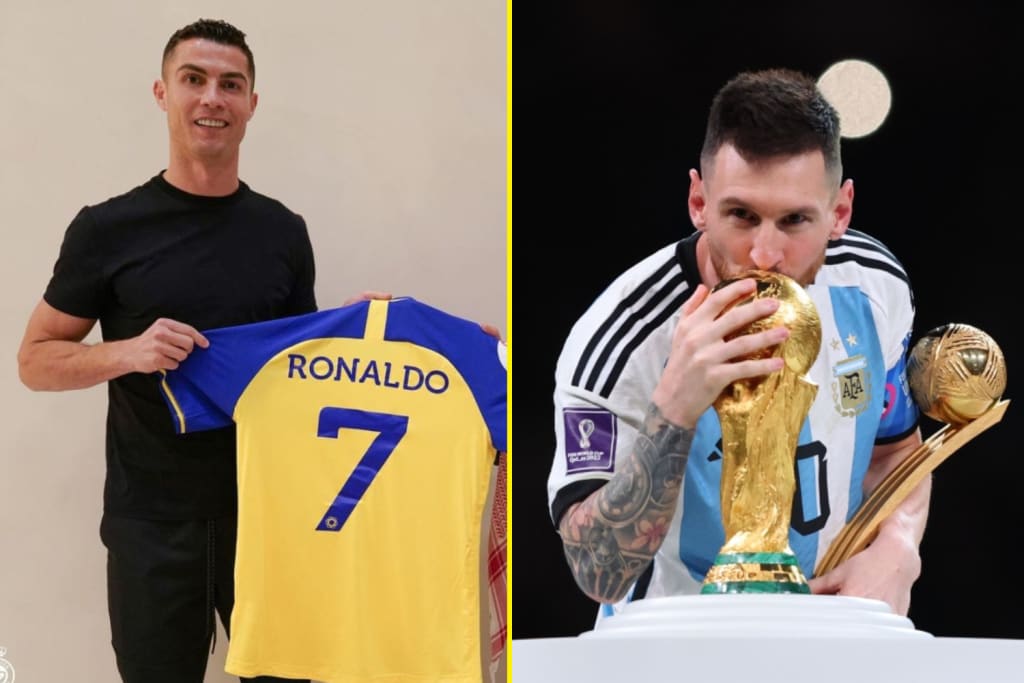Saudi Arabia is the front runner to secure the 2030 FIFA World Cup
The Gulf Country has become a serious competitor in the race to host the FIFA World Cup

When most countries were struggling to devise effective responses to the Covid 19 emergency in 2020 and 2021, Saudi Arabia was actively ramping up its business diversification, progressively moving away from its oil and gas-based economy. During the 2020–2021 crisis, the Kingdom of Saudi Arabia (KSA), under the leadership of the Public Investment Fund (with $620 billion under management), has been scooping up international companies battered by Covid. These investments are part of the broader Saudi strategy to ensure that the Kingdom plays a leading role in the future of global business. And just to be clear, this included football and other sports which are key pillars of the Saudi 2030 Vision.
Saudi’s football has been gaining traction over the last two decades, and the Kingdom national team performed well at the November 2022 World Cup hosted by Qatar. As a matter of reference, Saudi Arabia was the only team to defeat the Word Cup Champions Argentina during the 2022 FIFA tournament.
Just in 2021, Saudi Arabia spent $ 2,2 billion dollars on football, acquiring the New Castle football team, upgrading its sports infrastructure, organizing national tournaments with Italy and Spanish leagues, and securing new frothy partnership agreements with European tournament organizers. As of last week, the Kingdom committed an additional 1 billion US dollars until 2030 to acquire Cristiano Ronaldo, one of the most successful soccer players in the world. The other top player working as an ambassador for Saudi is the Argentina Leonel Messi, the winner of the 2022 World Cup and 7th “Ballon d’Or”. Ronaldo will work for Saudi Arabia, first as a player until 2025 for Al Nassr, a Saudi football team earning $ 214 million per year, and then as an ambassador of the Kingdom to lobby for the 2030 World Cup. Al Nassr is financed by Qiddiya Investment Company, a partner of the Saudi Public Investment Fund, which has played a leading role in Saudi Arabia’s economic diversification plans.
The official decision on who will host the world cup will be made in 2024, which gives the Kingdom a great head-start since they have been in full football strategy execution mode since 2020. All these sports investments seek to help Saudi build up its sport sector, creating state of the art stadiums, become a leader in sport content creation, acquire sports content rights, and fan engagement technology. These will not only galvanize the young population at home, 2/3 of which are under 35, but will also put Saudi on the global sport’s map, attracting millions of tourists every year to attend football, tennis, golf, cricket, and formula one competitions. Ultimately, the Saudi’s objective is to derive 2–4 per cent per year of its national GDP from sports.
Here is why Saudi will secure the FIFA 2030
The following three considerations represent key advantages that will favor the Saudi winning the bid to secure the FIFA World Cup in 2030.
Smart partnership: To overcome the veto that prevents FIFA from awarding the competition to the same continent within two editions, the Saudis have partnered up with Egypt and Greece. This will count as a multi-region application, as this is the first time 3 continents, Europe, Asia, and Africa bid together. Innovative partnership such as this, is a great way to brand the Saudi ambitions, particularly in a time of economic recession and war. The Saudi consortium is clearly the front-runner as they have been working on this for years setting up effective partnership with FIFA regional constituencies. They are followed by Portugal, Spain, and Ukraine trio, and trialed far behind by the weaker South American quartet comprising Uruguay, Paraguay, Argentina and Chile.
Financial strength: From 2026 the World Cup will be played by 48 teams instead of 32 as it used to be in previous world cups. This change will require significant additional capital allocation to build new stadiums, transport infrastructure, new digital infrastructure, and hotels. None of Saudi competitors have the financial capabilities nor “the stomach” to try to deliver on this. Furthermore, most of the European and Latin American economies are in financial trouble and are facing a potential devastating recession in 2023 2024. The Kingdom plans to allocate hundreds of billions of dollars across Saudi, Egypt and Greece to host the football event, and to develop the adequate infrastructure to make their bid competitive.
Oil and gas diplomacy: With the ongoing energy market crisis caused by geopolitical tensions in Russia-Ukraine, and Europe dealing with 40 years high energy prices, Saudi Arabia will profit and seek to position itself as a trusted Western aligned supplier of choice. Saudi Arabia will also use energy diplomacy offering attractive long-term favorable supply contracts to help consumer countries deal with energy inflation at home and raising risk of recession. Energy philanthropy will also be deployed to help lower-income countries particularly in Africa and in the Middle East to boost football training at home. All of this will strengthen diplomatic ties with energy consumers across Africa, the Middle East and Europe which will favor Saudi’s bid for the Fifa World Cup.
Final thoughts: With roughly 8 percent GDP growth in 2022, Saudi was one of the fastest growing global economies. 2023 will be another bumper year for Saudi Arabia, and this economic strength will result in incremental football and sports investment at home and abroad changing the global football game forever. Just think that by securing contracts with both Ronaldo and Messi, with a combined 1 billion followers on social media, Saudi Arabia has secured a big chunk of global support for their ambitious plan.
About the Creator
Andrea Zanon
Andrea Zanon is an international sustainable development and empowerment specialist who has dedicated his life to reducing poverty, promoting sustainability and empowering ambitious people






Comments
There are no comments for this story
Be the first to respond and start the conversation.